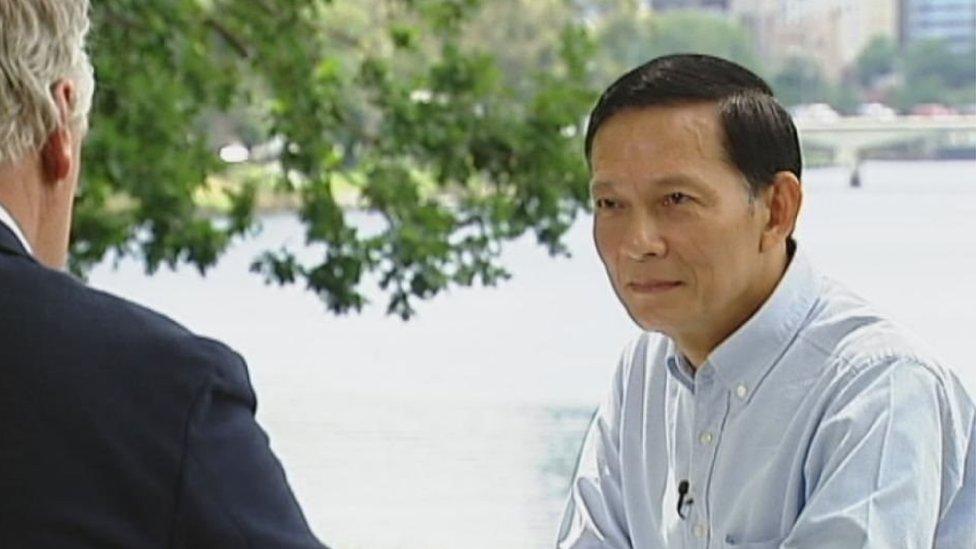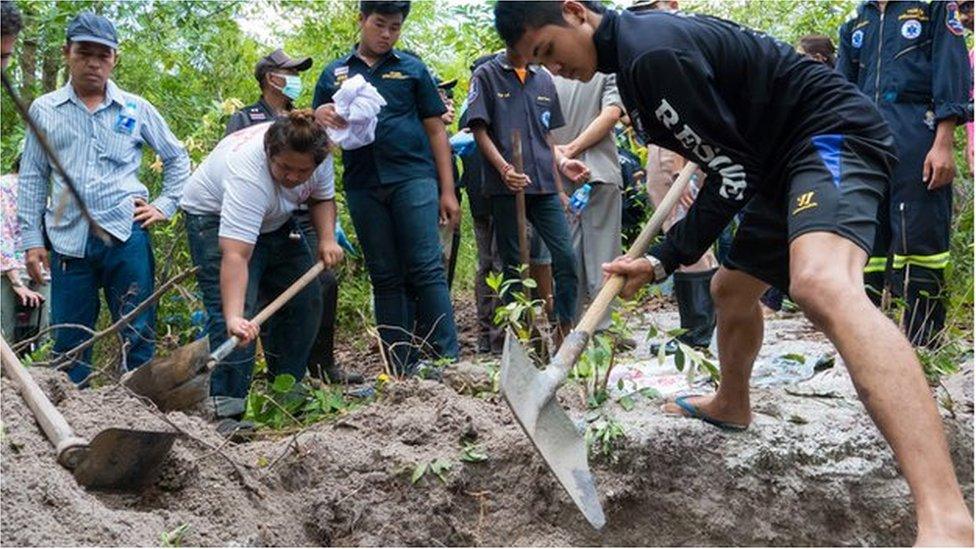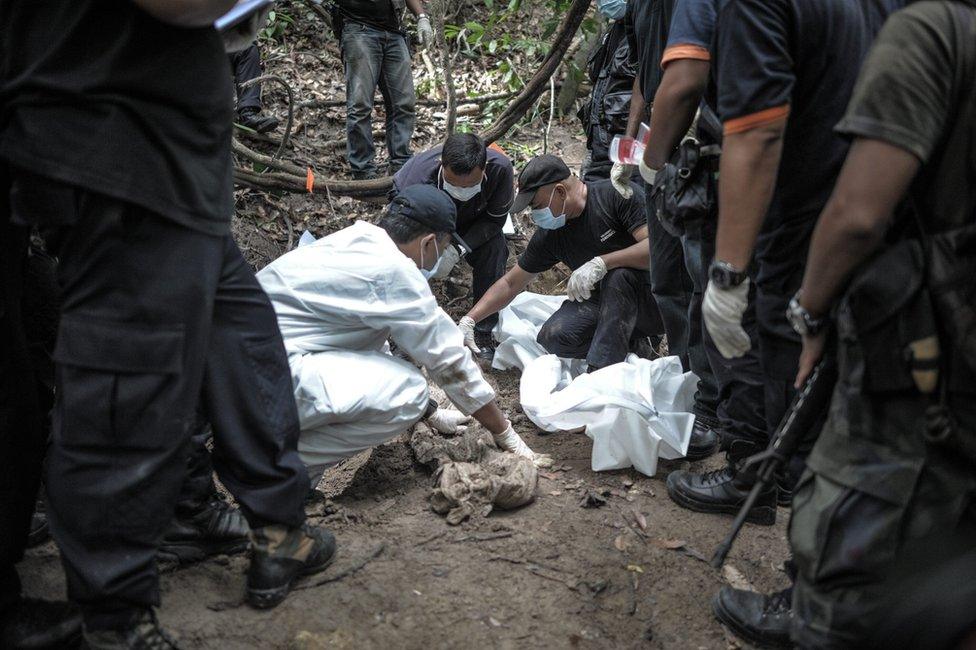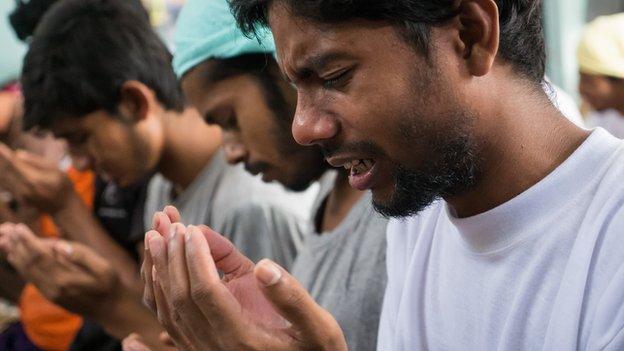Thailand trafficking: Top policeman seeks Australia asylum
- Published

Maj Gen Paween said he feared for his life after investigating trafficking
The policeman who led an investigation into human trafficking in Thailand has told the BBC he plans to seek political asylum in Australia.
Paween Pongsirin was appointed to investigate trafficking networks after the discovery of mass graves at migrant camps earlier this year.
Now in Melbourne, he said he fled Thailand because influential figures implicated in trafficking wanted him killed.
He quit the Thai police last month.
Maj Gen Paween said that his investigation, which wound up after five months, was halted by influential people in the government, military and police.
His investigation resulted in more than 150 arrest warrants issued - including for politicians, policemen and military figures - and trials have begun in Thailand.
But he told the BBC's Newsday programme that "some influential figures were not happy" about the warrants issued. He was reassigned to the far south of the country, and said he feared his life was in danger.
Thailand's military junta denies claims it turned a blind eye to human trafficking. There has been no official response to Maj Gen Paween's latest comments so far.

Jonathan Head, BBC News, Bangkok

Thai volunteers exhume unmarked migrant graves in the forest
The discovery of a mass grave in a trafficking camp along the Thai-Malaysian border in May happened almost by accident. But it shocked the Thai military government into starting a more thorough investigation into trafficking networks, which had until then operated with near-impunity.
The man they put in charge of that investigation was Police Major-General Paween Pongsirin, an officer with long experience in Thailand's south.
He pursued his task with dogged determination, bringing 88 suspects to court, including for the first time a senior military officer, General Manas Kongplan. These cases were presented by the Thai government as evidence of its good faith in wanting to stamp out the human trade.
But in October Maj Gen Paween's investigation was halted, despite his own pleas that his work was unfinished, with many more suspects at large.
He was ordered to move to the deep south, where amid an ongoing insurgency traffickers operate more freely, and where he said he and his family would be at great risk of reprisals. His appeals for help went unanswered, and he resigned from the police force.
That he has fled to Australia and sought asylum shows he feels unsafe staying in his own country; yet without his testimony the cases he initiated could well collapse. Other important witnesses have also gone into hiding.
And Thailand's claim to be serious about stopping the trafficking business looks hollow.

The discovery of mass graves in jungle camps around the Malaysia-Thai border in May put a spotlight on the human trafficking industry in the region.

Many of the migrants are believed to be Rohingya Muslims fleeing Myanmar as well as economic migrants from Bangladesh.
An investigation by the BBC earlier this year found entire communities in Thailand had been assisting the traffickers.
- Published22 May 2015
